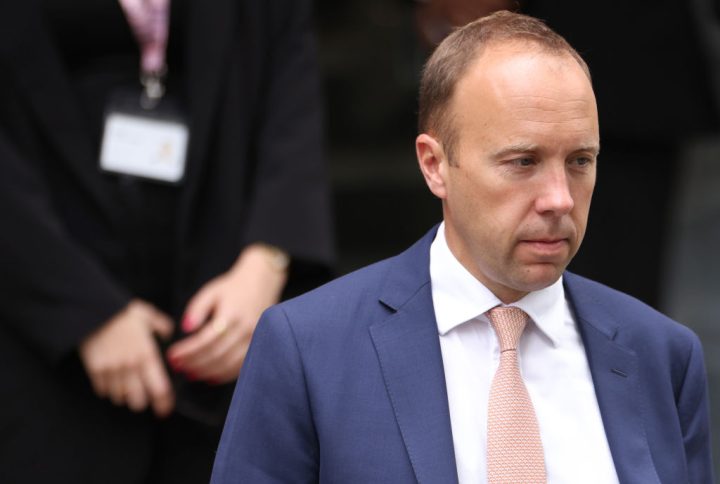Matt Hancock argued that he – rather than medical professionals – should be the one to decide who lived or died in the event of a shortage of medical supplies and the NHS being overwhelmed during Covid. This revelation comes from evidence given by Simon Stevens, who until 2021 was chief executive of NHS England, at the Covid Inquiry this morning.
Stevens didn’t like Hancock’s assertion, saying: ‘I certainly wanted to discourage the idea that an individual secretary of state, other than in the most exceptional circumstances, should be deciding how care should be provided. I felt that we are well served by the medical profession, in consultation with patients to the greatest extent possible, in making those kinds of decisions.’
Stevens made a point of dodging the question about Hancock’s honesty
And did Hancock lie during the pandemic? That seems to be another question the Covid inquiry wants answered today, asking both Stevens and Department of Health permanent secretary Chris Wormald repeatedly about it. Stevens made a point of dodging the question about Hancock’s honesty – to the extent that the answer became progressively more interesting. Initially, he said: ‘I was brought up always to look for the best in people.’ Pressed further, Stevens replied that Hancock’s word could be trusted ‘for the most part, yes’. Not a resounding endorsement for the former health secretary.
It’s worth understanding the wider context of Stevens’ comments. Matt Hancock was the health secretary who introduced legislation that cleared up the mess left by the disastrous Health and Social Care Act 2012. Those reforms by the then health secretary Andrew Lansley had formed NHS England as a legally separate entity, meaning the health secretary had no day-to-day power or responsibility for the service.
Hancock’s legislation was largely what Stevens wanted: it put into law changes the NHS boss had been introducing himself to circumvent the worst of the Lansley reforms. But the final 10 per cent of the bill was very much not to Stevens’ liking, as it gave the health secretary more power once again. It meant that even before the pandemic, there was a power struggle between the two men; Hancock’s suggestion that he should have responsibility for medical decisions as well as more involvement in operational matters will have rankled particularly in that context.
Wormald had a much more diplomatic approach to his evidence than Stevens. He is, after all, still the permanent secretary at the Department of Health and Social Care. Therefore he needs to beware of undermining the relationship of trust he has with his current ministers and those who come into the department in future. But even below his careful phrasing, there was a lot that corroborated the evidence of the past few days. He also told the room that there was too much focus on a ‘blame game’ in the early days of the pandemic.
The evidence session questioned the validity of Boris Johnson’s belief that the NHS wouldn’t be overwhelmed were it not for ‘bed blockers’: that is, people who were unable to leave hospital because there was no safe discharge plan involving social care. Stevens said that even if all 30,000 ‘blocked beds’ were freed up, ‘there would be another five patients who needed that care but weren’t able to get it’.
Stevens also revealed that he had at one point discussed with Johnson the possibility of him staying on to help reform of social care. He had then declined when it became clear he would not be given the resources and money that were absolutely critical to this.
The question of whether the NHS was, in fact, overwhelmed (which Fraser explores here), wasn’t fully probed. But its former boss did agree with the claim made by Helen MacNamara about a lack of understanding in Downing Street of how the NHS worked. In fairness, few in the NHS really understand the totality of the organisation they work for. But Stevens agreed that other policy areas, such as defence, were better represented in No. 10. Which is odd, given the salience of the NHS – and indeed its size and cost.







Comments